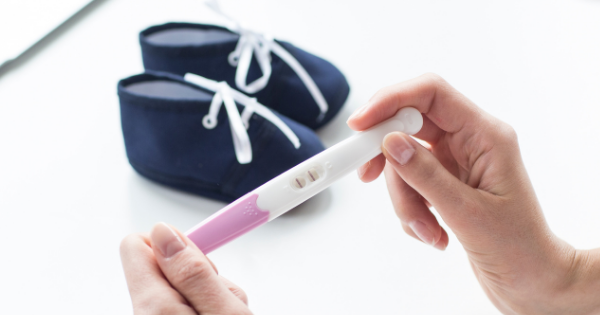Suspecting that you are pregnant can leave you with mixed feelings especially if you are uncertain about the changes your body will go through during pregnancy. In this article we will give you some guidelines about your first trimester checklist to help ensure a healthy and happy pregnancy. From doing regular exercise to following a healthy diet, we will be unveiling it all.

First Trimester Checklist
Making sure that your pregnancy is real
This should be the very first thing on your first trimester checklist. Some home pregnancy tests can detect pregnancy accurately during the first week after your period was supposed to happen (two weeks after ovulation). If the test is revealing a faintly positive or a negative result, its best to wait a few more days and try again if your period still has not arrived.
Arranging an appointment with your midwife
Once you have established that you are pregnant, let your doctor know so that you can schedule your first appointment with your midwife. The timing of the first antenatal booking is usually dependent on where you stay. Your first appointment must be scheduled by the time you are ten weeks along. Appointments usually are scheduled between eight and twelve weeks of pregnancy.
To prepare for your first prenatal appointment, make a note of your last period date so that the healthcare professional can determine the expected due date. Also write down a list of all the questions you have. Your GP will also ask if you have any chronic health conditions in the family or genetic abnormalities.
Start taking prenatal vitamins / supplements
It is essential to start taking folic acid during the time you are trying to conceive and during the first trimester. Folic acid plays a major role in preventing neural tube birth defects like spina bifida. If you have not taken folic acid yet, start taking it every day right away. You must take 400 mcg (micrograms) of folic acid each day which can be bought over the counter from supermarkets or pharmacies.
Vitamin D is also essential, and you can get it from getting enough sun or taking a supplement. It helps to follow a balanced eating plan while pregnant to ensure you are getting all the minerals and vitamins your body and baby needs.
Start looking into health insurance
Evaluate if your current health insurance plan is covering everything, including prenatal care, delivery costs, and taking care of your new-born. Contact your health insurance company to check this, or if you do not have health insurance, make some inquiries about where you can get assistance.
Choosing your healthcare provider
If you already have a midwife or GP you prefer, you do not have anything to worry about. If you do not you must start doing your homework. Get recommendations from friends and relatives to find out which healthcare providers they have used. You can also do some research online.

Speaking to your GP about any medications you are taking
Many medications, even over the counter drugs are considered unsafe for pregnancy. If you are taking any chronic medications, do not stop right away but call your GP to find out whether you can continue taking them or what his recommendations are for your situation. Mention all medications on your list, even supplements, vitamins, and herbs.
If you are a smoker, it is time to consider quitting
Smoking during pregnancy poses a higher risk of ectopic pregnancy, premature labour, and miscarriage. Remember, the smoke that you are inhaling can affect healthy grow of your unborn baby and result in low birth weight. No time is as good as now to consider giving up. If you need assistance, speak to your GP about recommendations for local stop-smoking support schemes.
Insufficient evidence and research exist about the effects of e-cigarettes during pregnancy. However, as far as pregnancy goes, if you are unsure, rather avoid it. The vapour of e-cigarettes contains nicotine as well as other toxins that could negatively impact the health of your unborn baby.
Try cutting out alcohol completely
A lot of uncertainty exists about the effects of alcohol on the fetus during pregnancy. Most experts recommend cutting out alcohol completely when you are pregnant. It is better to be safe than sorry.
Limiting caffeine intake during pregnancy
If you can’t face a day without having a cup of your favourite brew, while being pregnant, you can still drink coffee, but restrict yourself to 200mg of caffeine per day (one to two cups a day). Too much caffeine during pregnancy amplifies the risk of a miscarriage. Bear in mind cola, chocolate, teas (including green tea), and energy drinks also contain caffeine.
Finding out what is safe to eat and drink during pregnancy
A balanced and healthy eating plan is the way to go when you are pregnant and breastfeeding to ensure your baby is getting all the nutrients he or she needs. Start implementing a healthy diet as soon as possible.
You do not necessarily extra calories during the first and second trimester, however it is important to avoid specific foods during pregnancy. They may contain parasites, toxins or bacteria that are harmful to your baby.
Such foods included unpasteurised dairy products, deli foods, cheeses, liver, and pate, undercooked or raw meat, and raw shellfish. Eat healthy snacks and avoid those that contain loads of sugar, sodium, and fat.
Include pregnancy superfoods in your diet
For a maximum nutritional boost, eat the right superfoods that include veggies, fruits, salmon, eggs, plain yogurt, sweet potatoes, beans, walnuts, and more.
Ensure the activities you engage in are safe for pregnancy
Some tasks, hobbies, and activities can be dangerous for you and your baby. Certain chores in the home must be avoided or you must use products that do not contain toxic ingredients. Steer clear from pesticides, cleaning products, and solvents that may be toxic. If you are exposed routinely to certain biological agents, heavy metals (mercury or lead), chemicals, or radiation (working in a medical environment) you must make certain changes sooner rather than later.
Come up with methods to limit or eliminate hazards at your workplace and home. If you must do chores, ensure you do them safely. Be cautious of the cleaning products and household chemicals you are using. Always wear gloves and avoid any contact with products with warning labels or strong fumes. Keep the windows open while you are cleaning and try to steer clear from products that are stored in aerosol cans.
Getting relief for morning sickness symptoms
Many pregnant mommies experience sickness during the first trimester of pregnancy. You can ease the nausea symptoms by eating small amounts of food often. Try to stick to foods that has the less nauseating effect on you. Snack on crackers or plain biscuits. The nausea should subside between sixteen weeks and twenty weeks of pregnancy. If you are suffering from severe morning sickness and are unable to keep any fluids down, call your GP or midwife immediately.
Familiarizing yourself with the danger signs
There are specific pregnancy symptoms that must never be overlooked. As your baby is developing, you may feel the odd twinge or mild cramps in your stomach. However, if your cramps are accompanied with bleeding and abdominal pain, you must call your GP, hospital, or midwife to be checked out immediately.

Getting plenty of rest
During your first trimester, it is normal to suffer from tiredness and fatigue. Your body is starting to adjust to the quickly changing hormone levels. Rest as much as you can and relax while it is still possible. This can be problematic if you are still working. If this is the case, try to go to bed early, but get up at the same time you normally do. This will assist your body with understanding when bedtime is.
Turn off your electronic devices and forget about daily stress and work. Once your baby makes his appearance, exhaustion and sleep deprivation will be at the order of the day. So, now is the time to rest up. Try to get into the habit of sleeping on your side. W
hen your bump grows, you will be used to sleeping on your side and sleeping on your back is not recommended because it can influence your baby’s blood supply. Sleeping on your side during the third trimester, lowers the risk of stillbirths, therefore its worth getting into the habit early.
Start preparing for meeting your little one
If you have a complication-free pregnancy, then your initial ultrasound scan between ten and fourteen weeks of pregnancy will be the first time you hear your bambino’s heartbeat and the gynaecologist or GP will tell you when the baby is due. The scan usually lasts about twenty minutes, but it can take longer if the baby must first get into the right position.
Deciding when you will be announcing your pregnancy
Some women tell their colleagues, relatives, and friends immediately once they find out they are pregnant. Others wait until the second trimester once the bump becomes difficult to hide. If you are anticipating complications, or you are working in a strenuous or potentially hazardous environment, you may have to reveal the pregnancy earlier.

Exercising during pregnancy is good
Frequent exercising during pregnancy can assist you with coping with the mental and physical demands linked to pregnancy. You can exercise as long as it feels comfortable. It might also be a lot easier for you to manage weight gain if you remain active throughout your pregnancy. Read up on the best pregnancy exercises that can be beneficial to you during this time.
Booking antenatal classes
It is wise to book antenatal classes in advance. Some classes are book up quickly due to high demand. Find out at the start of your pregnancy about available courses in your local area and how soon you can book them.
Begin doing some pelvic floor exercises
Pelvic floor exercises are incredibly useful. They can offer protection against urine leaking while pregnant and beyond baby’s birth. Having strong pelvic floor muscles is also helpful in your sex life too. It can take your orgasms to an entirely different level. If you have not learned pelvic floor exercises during antennal sessions, ask your midwife to tell you more about them during your next appointment.
Involve your partner during your pregnancy
Most moms start experiencing pregnancy symptoms early on. This helps them to start bonding with their babies from the beginning. Dads do not experience this and their role in a child’s life is just as essential. Involve your partner in your pregnancy and help them understand what your body is going through and what you are experiencing. There are plenty of useful guides out there that you can share with him.
Start investing in maternity bras and underwear
Full tender breasts are one of the initial signs of pregnancy. Invest in comfy maternity bras to make your pregnancy journey more pleasant. Buy the right bras to offer the necessary support. Also invest in comfortable maternity panties that accommodate your growing bump that are not causing any discomfort.
Having sex when the mood arises
During the first trimester you are feeling exhausted, stressed, and sick most of the time. The last thing on your mind is usually having sex. If you have a relaxed and complication-free pregnancy, there is no reason why you cannot have sex with your partner.
Many women have an increased libido during pregnancy. There are various sex positions that you can try during the different trimesters. Remember after your baby’s arrival, time for being intimate with your partner will be limited.
Most women do not have a sex drive after giving birth and if you had a C-section you cannot have sex because your body needs at least six weeks to recover after surgery.
Having a massage
If you are suffering from backache and headaches during pregnancy, invest in a pregnancy massage to help you relax. You can also ask your partner to rub your shoulders, back, shoulders, and feet to relieve the tension.
Following your growing baby’s development
Sign up for newsletter or download an app on your phone. This way you can track your baby’s development each week.
Budgeting for baby’s arrival
Work out a budget for your baby in advance. Having babies does not come cheap. Remember, there are a few big-ticket items that you will need to get, such as a car seat, a cot, and a push chair. Buying second-hand items that are still in excellent condition can go a long way in cutting costs.
Conclusion
We hope you have found this article about your first trimester checklist when expecting useful. Enjoy your pregnancy and make sure you are well prepared for your little one’s arrival.
 Kaboutjie SA Mommy Blogs by Lynne Huysamen
Kaboutjie SA Mommy Blogs by Lynne Huysamen









So informative
Wow very interesting 💓
I wish I had this in the beginning of my pregnancy ❤️
Such a great list wish I had it through my pregnancy but you never know what could happen so will keep it for just incase lol
I wish I know this last year thank you always a great read and helpfull
I wish I knew this. My first trimester was a war one, my only focus was just to survive.
Very helpful thank I had done most of these when I found out I was pregnant.